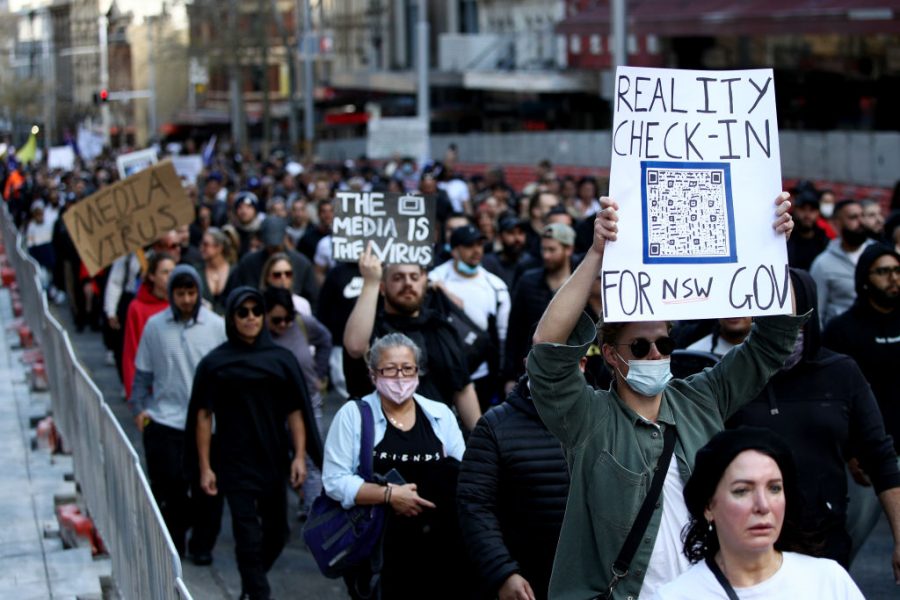The threat spectrum

Planet A
Wars, political upheavals, locust plagues and cyclical droughts in Africa have often left starvation in their wake. But without that sort of instability, Madagascar is experiencing a catastrophic famine and concern has been voiced that climate change is to blame. Cyclones, earthquakes and floods have devastated agriculture supplies in the south of the major island nation and sparked widespread starvation.
Madagascar’s situation highlights the disproportionate burden of climate instability borne by low-income nations. Counties in the Sahel and the Southwest Pacific, which have done little to contribute to climate change, are experiencing cascading extreme weather events. Wealthy countries have so far committed US$100 billion a year to build climate resilience in the global south. However, key donors haven’t yet met their promised targets. Experts say greater resources are urgently needed to help countries across the globe become climate resilient.
Democracy watch
Protests in Australian cities against lockdowns, sluggish vaccine rollouts and governments’ handling of the pandemic mirror demonstrations seen in France, Italy, Greece and Germany. Covid-related protests have caused a democratic crisis in Tunisia. The Carnegie Endowment global protest tracker has logged over 25 politically motivated protests across authoritarian and democratic states.
Protests can be an indicator of the health of a democracy, but these persistent large-scale demonstrations raise difficult questions about the tensions between individual and collective rights in a pandemic when exercising those rights may endanger others. Australian governments and health experts have condemned the protests, and the NSW government is urging people to identify those who took part. One of those so named described that action as ‘un-Australian’.
Coalitions of alienated groups frustrated with the pandemic response are vulnerable to disinformation and manipulation, especially by far-right groups, further damaging social cohesion and trust in democratic government.
Information operations
A disinformation-for-hire campaign has been uncovered after two European social media ‘influencers’ revealed that they were offered payment to spread false information about the Pfizer–BioNTech vaccine. The influencers said the offer was made by what appeared to be a London-based public relations agency on behalf of an anonymous client. They were asked to present claims that there had been hundreds of vaccine-related deaths. While these influencers rejected the offer, others accepted. At the same time, social media accounts in Brazil and India posted videos spreading similar false information.
The PR agency was later found to be using a fake address. LinkedIn profiles associated with the firm described it as a subsidiary of a Russian advertising company, Adnow. These activities highlight a worrying trend in state-sponsored disinformation on social media platforms, with more nuanced campaigns that mirror advertising and PR strategies using social media influencers to target specific audiences. While the strategic impact of these influence-for-hire campaigns isn’t yet clear, this approach is likely to become a more prominent tool of state power.
Follow the money
Taiwan Semiconductor Manufacturing Company, the world’s largest semiconductor manufacturer, is expanding overseas with the construction of plants in the US and Japan. TSMC has also opened preliminary discussions with Germany. While the company says it’s still too early to confirm plans for a German plant, the deal could provide strategic benefits for both parties.
The EU, like the US and others, hopes to ease its supply-chain vulnerabilities through sovereign semiconductor production. It formalised this goal last month through a joint declaration on processors and semiconductor technologies.
TSMC’s global expansion out of Taiwan is driven by the need to mitigate risks associated with having the company’s semiconductor production concentrated so close to neighboring China. Increasing global efforts to establish onshore chip production are driven by security concerns rather than by market opportunities, given semiconductors’ crucial importance across the automobile and technology sectors. Ernst & Young predicts that collective efforts to stabilise global supply chains will correct imbalances in semiconductor supply in the short term and that international demand will persist.
Terror byte
The first person to go to trial under Hong Kong’s new national security laws has been found guilty of terrorism and inciting secession. Twenty-four-year-old Tong Ying-kit was arrested last year for driving a motorcycle into three police officers while bearing a placard with the words ‘Liberate Hong Kong. Revolution of our times’, a slogan synonymous with the pro-democracy protests. Tong is awaiting sentencing and could be jailed for life.
Observers say the verdict and the coming sentencing are indications of how far Hong Kong authorities are willing to go in enforcing the Beijing-imposed laws to curtail Hong Kong’s independent judiciary and Hongkongers’ freedom of speech.